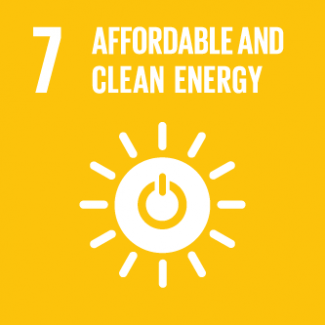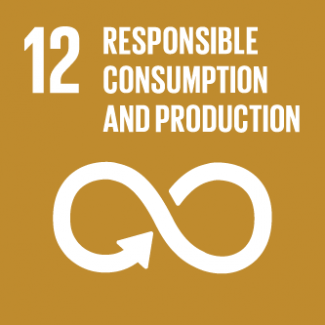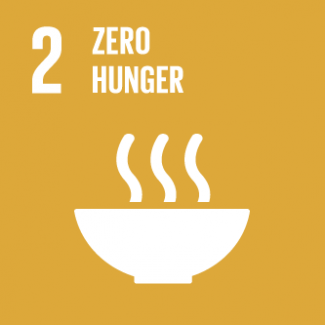The Democratic Socialist Republic of Sri Lanka (Sri Lanka), with an estimated 22.2 million population, is a lower middle-income country with a gross national income per capita of US $3,720 in 2020. The country experienced a period of strong economic growth and poverty reduction following the cessation of a 26-year conflict in 2009, culminating in the categorization as upper-middle income in 2019, before falling below the threshold in 2020 in the wake of the COVID-19 pandemic.
The Government responded to the initial outbreak of the COVID-19 virus with a comprehensive package of measures, including a lockdown, that saw the country avoid a serious first wave of the pandemic. The public health emergency created by the pandemic was met with rapid mobilisation of emergency-responsible health services across Sri Lanka’s government hospitals and Primary Medical Care Units, which continued to deliver the Essential Services Package and other key services to the population. Sri Lanka’s national rollout of COVID-19 vaccination has been among the fastest in the region, with more than 97 per cent of Sri Lanka’s over-12 population having received one dose of a COVID-19 vaccine, 82 per cent having received two doses and 55 per cent having received the third dose by May 2022.
Sri Lankans have shown high levels of community resilience and solidarity in the face of the social and economic crisis. However, the current economic crisis is unprecedented in scale and impact and has already shown how it can increase political risks and dramatically erode public confidence. Despite the recent economic shocks arising first due to the COVID-19 pandemic and then exacerbated by the debt crisis, Sri Lanka continues to be committed to the SDGs with the goals and objectives of the 2030 Agenda featuring prominently in national development strategies. Government policy, as outlined in the framework titled Vistas of Prosperity and Splendour, makes strong references to the 2030 Agenda and commits to a programme of actions to achieve the SDGs.
Sri Lanka’s medium-term Public Investment Programme (PIP) 2021-2024 is informed by the policy framework. The PIP focuses on strategic sectors that are viewed as crucial to stimulate the economy and prioritises the public investments that are central to achieve smart, sustainable and inclusive economic growth in the medium-term. The PIP outlines key strategies and policy targets in social sectors (including education, health, labour markets, technology and ICT), agriculture, public infrastructure (including roads, transport, water and sanitation), governance, environmental management, social protection and regional development.
Despite the economic issues, Sri Lanka has been able to receive USD 228 million worth of foreign direct investments in the first quarter of 2022. The Board of Investment (BOI) of Sri Lanka has set a target of signing USD 2 billion worth of new investment projects for 2022 with more than half of this expected target achieved so far. According to the BOI, of these 75 agreed projects, 26 are new projects, while the remaining 49 projects are expansions of existing industries and businesses. Sri Lanka will have to rely on its key strength of location and market access given it’s at the crossroads of major shipping routes to South Asia, the Far East, and the continents of Europe and America. The country is home to one of the Top 25 Container Ports in the World, the country is a key port of call for shipping lines and airfreight services. Further, Sri Lanka’s proximity to the Indian sub-continent positions the country as a gateway to a market of 1.9 billion people in South Asia alone. These factors combined, generate keen interest for Sri Lanka as a preferred investment destination in the region.
Sources:
2. World Bank. 2021. GNI per capita, Atlas method (current US$) - Sri Lanka. World Bank DataBank
3. Sri Lanka Presidential Secretariat. 2022. Status of COVID-19 Cases and Vaccination.
15



Renewable Resources and Alternative Energy, Food and Beverage, Infrastructure
0.782
How is this information gathered?
SDG Investor Maps employ an 8-step methodology, combining data research and stakeholder consultations to identify Investment Opportunity Areas (IOAs) and potential business models with significant financial and impact potential.
Disclaimer
UNDP, the Private Finance for the SDGs, and their affiliates (collectively “UNDP”) do not seek or solicit investment for programmes, projects, or opportunities described on this site (collectively “Programmes”) or any other Programmes, and nothing on this page should constitute a solicitation for investment. The actors listed on this site are not partners of UNDP, and their inclusion should not be construed as an endorsement or recommendation by UNDP for any relationship or investment.
The descriptions on this page are provided for informational purposes only. Only companies and enterprises that appear under the case study tab have been validated and vetted through UNDP programmes such as the Growth Stage Impact Ventures (GSIV), Business Call to Action (BCtA), or through other UN agencies. Even then, under no circumstances should their appearance on this website be construed as an endorsement for any relationship or investment. UNDP assumes no liability for investment losses directly or indirectly resulting from recommendations made, implied, or inferred by its research. Likewise, UNDP assumes no claim to investment gains directly or indirectly resulting from trading profits, investment management, or advisory fees obtained by following investment recommendations made, implied, or inferred by its research.
Investment involves risk, and all investments should be made with the supervision of a professional investment manager or advisor. The materials on the website are not an offer to sell or a solicitation of an offer to buy any investment, security, or commodity, nor shall any security be offered or sold to any person, in any jurisdiction in which such offer would be unlawful under the securities laws of such jurisdiction.




















